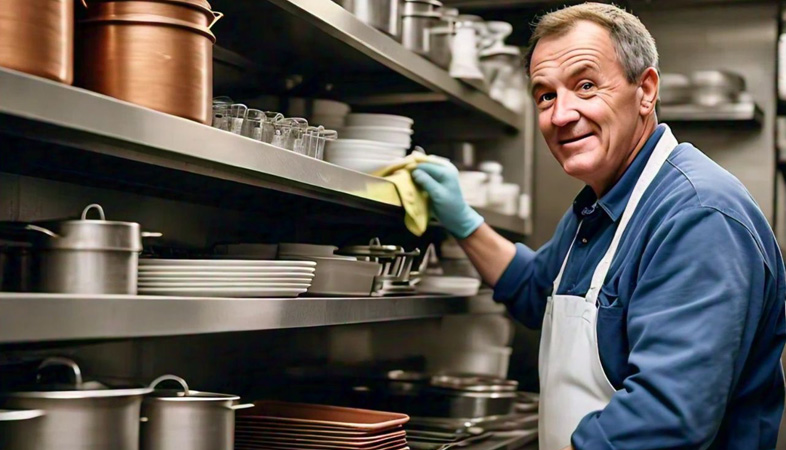Sustainable Housekeeping Practices That Hotels Can Adopt
Housekeeping departments, often responsible for the bulk of a hotel's daily operations, play a crucial role in implementing sustainable practices.
Sustainability is increasingly becoming a key concern for
travelers and hotel operators alike. As environmental awareness grows, hotels
are facing pressure to implement eco-friendly practices that not only help the
planet but also appeal to environmentally conscious guests. Housekeeping
departments, often responsible for the bulk of a hotel's daily operations, play
a crucial role in implementing sustainable practices. By adopting greener
housekeeping methods, hotels can reduce their environmental footprint while
promoting eco-friendly values to their guests.
One of the first areas where sustainable practices can make a significant impact is in water conservation. Housekeeping teams can implement several strategies to reduce water usage, starting with efficient laundry practices. Hotels often use large amounts of water to wash bed linens, towels, and other fabrics. By encouraging guests to reuse towels and linens, either through in-room signage or digital reminders, hotels can reduce the frequency of washing. Additionally, switching to high-efficiency washing machines that use less water and energy can further cut down on consumption. It's also important to monitor water use in other areas, such as cleaning the floors and bathrooms, by using spray bottles instead of hoses to minimize waste.
Waste reduction is another crucial aspect of sustainable housekeeping. Hotels generate large amounts of waste, including single-use plastic bottles, packaging, and disposable cleaning supplies. By adopting a zero-waste approach, hotels can significantly reduce their landfill contributions. One of the most effective ways to reduce waste is by switching to bulk dispensers for toiletries such as shampoo, conditioner, and body wash, eliminating the need for single-use plastic bottles. Housekeeping can also work closely with other hotel departments to ensure that food waste and recyclables are properly separated and managed. Implementing a recycling program in guest rooms and common areas encourages guests to dispose of their waste responsibly.
Energy conservation is also a critical element of sustainable housekeeping. Simple changes, such as using energy-efficient lighting and appliances in guest rooms and housekeeping storage areas, can contribute to significant reductions in energy consumption. Another strategy is to ensure that cleaning equipment, like vacuum cleaners and floor scrubbers, are energy-efficient models that reduce electricity usage. Additionally, housekeeping staff can be trained to turn off lights, air conditioning, and other electronic devices in rooms after cleaning, ensuring that energy is not wasted while the room is unoccupied.
Incorporating eco-friendly cleaning products is another way hotels can improve their sustainability practices. Traditional cleaning products often contain harsh chemicals that can pollute the environment and affect the health of both guests and housekeeping staff. By switching to non-toxic, biodegradable cleaning agents, hotels can create a safer and more sustainable environment. Many eco-friendly products are now available that are just as effective as traditional chemicals but without the harmful side effects. Additionally, microfiber cloths and mops, which require less water and cleaning products, can be used to clean surfaces more efficiently while also reducing waste.
Hotel housekeeping teams can also promote sustainability by embracing green certifications and participating in environmental initiatives. Many organizations, such as Green Key and EarthCheck, offer certification programs that recognize hotels for their sustainable practices. Achieving these certifications can help boost the hotel’s reputation as an eco-friendly destination and attract environmentally conscious travelers. In addition to certifications, hotels can participate in local sustainability initiatives, such as planting trees, supporting local sustainable businesses, or reducing their carbon footprint by using renewable energy sources.
Sustainable housekeeping practices extend beyond just cleaning and maintenance; they can also involve the types of amenities and supplies used in guest rooms. By choosing sustainable, locally sourced, and ethically produced products, hotels can make a positive environmental impact. For example, providing organic cotton linens, eco-friendly toiletries, and recycled paper products not only supports sustainability but also enhances the guest experience, as many travelers are seeking more eco-conscious options. Hotels can also opt for energy-efficient appliances and fixtures in guest rooms, such as LED lighting, low-flow showerheads, and water-saving faucets.
Sustainable housekeeping practices are a key component of a hotel's overall sustainability strategy. By adopting water and energy-saving measures, reducing waste, using eco-friendly cleaning products, and promoting sustainable practices to guests and staff, hotels can significantly reduce their environmental footprint. These efforts not only benefit the planet but also enhance the hotel's reputation, attract eco-conscious guests, and ensure long-term operational savings. As sustainability becomes an increasingly important factor for travelers, hotels that prioritize green practices in housekeeping will be well-positioned to meet the demands of the future.
.png)






.jpeg)






















